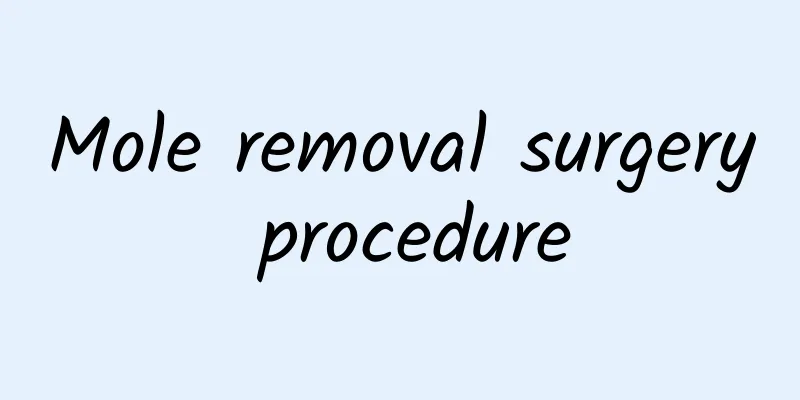How to treat fourth degree hemorrhoids surgically?

|
Hemorrhoids include internal hemorrhoids, external hemorrhoids, and mixed hemorrhoids. They are a chronic disease in which the venous plexus at the bottom of the anorectum and anal mucosa becomes varicose, forming one or more soft venous masses. Internal hemorrhoids are divided into grades I, II, III, and IV. Generally speaking, there may be symptoms such as itching, pain, and blood in the stool. So are IV hemorrhoids serious? What kind of treatment is needed? Generally, surgery is the treatment option. (1) Some fourth-degree hemorrhoids can be treated with surgery; (2) Principles of surgery: Surgery is used to reposition the prolapsed anal cushion and preserve the structure of the anal cushion as much as possible, thereby minimizing the impact on the ability to control bowel movements. (3) Preoperative preparation: When there are ulcers or infections on the surface of internal hemorrhoids, conservative treatment such as laxatives and warm water sitz baths should be performed first, and surgery can be performed after the ulcers have healed; bowel preparation should be performed. (4) Surgical methods: ① Thrombosed external hemorrhoidectomy ② Traditional hemorrhoidectomy, i.e. external hemorrhoidectomy and internal ligation. ③Circumcision of hemorrhoids is a classic procedure in textbooks, which can easily lead to anal stenosis and is rarely used in clinical practice. ④PPH surgery: hemorrhoidal rectal mucosal circumcision and stapling with stapler. It was created by Italian doctor Longo and began to be promoted in 1998. It is mainly suitable for prolapsed III-IV grade mixed hemorrhoids, annular hemorrhoids, and some severely bleeding II grade internal hemorrhoids. The mechanism of PPH in treating prolapsed hemorrhoids: circular resection of 2 to 3 cm mucosa and submucosal tissue at the lower end of the rectum to restore the normal anatomical structure, that is, the anal cushions are returned to their original position; the resection of the submucosal tissue blocks the blood supply of the superior hemorrhoidal artery to the hemorrhoidal area, causing the hemorrhoids to shrink after surgery. Compared with traditional hemorrhoidectomy, PPH surgery has shorter operation time, less postoperative pain, faster recovery and fewer complications, but the equipment is more expensive. (5) Observe for complications after surgery, pay attention to diet, and maintain smooth bowel movements. We know that hemorrhoids generally do not require treatment and can be treated conservatively. Moreover, the treatment of hemorrhoids only relieves symptoms rather than cures them. Grade IV hemorrhoids are more serious and may require certain surgical treatments to relieve the patient's pain. When treating hemorrhoids, we must choose the appropriate treatment method based on the severity of the condition. |
<<: How long should I wait to take Chinese medicine?
>>: How to prevent recurrence of genital warts?
Recommend
What is the cause of the dull pain under the left ribs?
The dull pain below the left rib makes many peopl...
What to do if liver palms appear
You don’t need to go to the hospital for diagnosi...
What are the general treatment and dietary methods for hypertension?
Hypertension is a clinical syndrome characterized...
11-year-old boy has acne on his face
Before reaching puberty, many children around 11 ...
Isatis root granules ingredients
Isatis root granules are an over-the-counter medi...
What are the manifestations of moisture removal?
Too much moisture in the body is harmful to the b...
Will insufficient qi and blood lead to infertility? It needs to be regulated in time.
Many women show symptoms of insufficient Qi and b...
What does heat furuncle and carbuncle mean?
Heat carbuncle and furuncle is a disease that exi...
Is regular cupping good for your health?
There are many ways to maintain health, and cuppi...
Kidney Yin Deficiency Soaking Wine
Kidney Yin deficiency is a relatively common cond...
Causes of sallow complexion
You often hear people describe some very thin peo...
Bleeding with blood clots in early pregnancy
Women must carefully observe their bodies in the ...
What are the traditional Chinese medicines that can remove dampness?
Some friends will think of using Chinese medicine...
Why does my legs feel sore due to delayed menstruation?
Menstrual problems are very common in people'...
What are the symptoms of poor liver and gallbladder function?
It is inevitable that people will get various dis...









